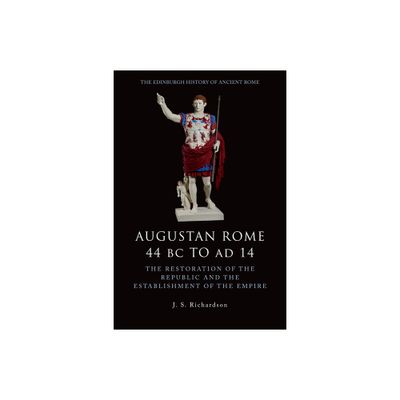Home
Rome Against Caratacus: The Roman Campaigns Britain AD 48-58
Loading Inventory...
Barnes and Noble
Rome Against Caratacus: The Roman Campaigns Britain AD 48-58
Current price: $51.99


Barnes and Noble
Rome Against Caratacus: The Roman Campaigns Britain AD 48-58
Current price: $51.99
Loading Inventory...
Size: Paperback
*Product Information may vary - to confirm product availability, pricing, and additional information please contact Barnes and Noble
The Roman Conquest of Britain
in AD 43 was one of the most important turning points in the history of the British Isles. It left a legacy still discernible today in the form of archaeological remain, road networks, land divisions and even language.
In his much-acclaimed trilogy, now up-dated and revised, Dr Webster builds up a fascinating and lively picture of Britain in the first century AD and discussed in detail the various types of evidence and the theories based upon it.
Caratacus' last stand against the Romans has a central place in the folklore of the Welsh Marches, where many a hill is claimed to be the site of the famous battle. But, as Graham Webster shows, this epic encounter was not only real history but also part of an intricate ten-year series of campaigns conducted after the initial conquest of Britain.
By interpreting the ancient historical accounts and piecing together the masses of archaeological evidence, Dr Webster has brilliantly reconstructed this central period of the Claudian Conquest of Britain and its immediate aftermath.
in AD 43 was one of the most important turning points in the history of the British Isles. It left a legacy still discernible today in the form of archaeological remain, road networks, land divisions and even language.
In his much-acclaimed trilogy, now up-dated and revised, Dr Webster builds up a fascinating and lively picture of Britain in the first century AD and discussed in detail the various types of evidence and the theories based upon it.
Caratacus' last stand against the Romans has a central place in the folklore of the Welsh Marches, where many a hill is claimed to be the site of the famous battle. But, as Graham Webster shows, this epic encounter was not only real history but also part of an intricate ten-year series of campaigns conducted after the initial conquest of Britain.
By interpreting the ancient historical accounts and piecing together the masses of archaeological evidence, Dr Webster has brilliantly reconstructed this central period of the Claudian Conquest of Britain and its immediate aftermath.


















